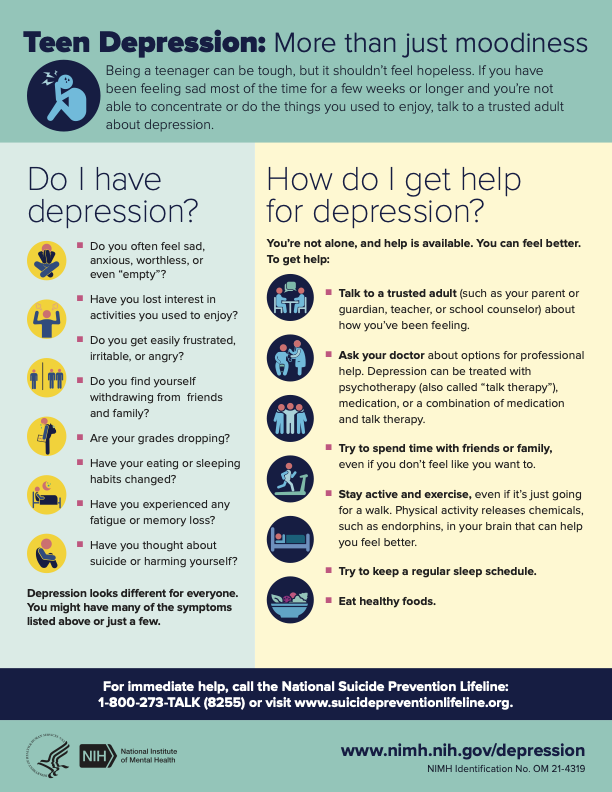Parents’ Influence on the Health of Lesbian, Gay, and Bisexual Teens: What Parents and Families Should Know
 The teen years can be a challenging time for young people and their parents. This fact sheet provides information on how parents can promote positive health outcomes for their lesbian, gay, or bisexual (LGB) teen.
The teen years can be a challenging time for young people and their parents. This fact sheet provides information on how parents can promote positive health outcomes for their lesbian, gay, or bisexual (LGB) teen.
The information is based on a review of published studies, which found that parents play an important role in shaping the health of their LGB teen.
When LGB teens share their sexual orientation (or even if they choose not to share it), they may feel rejected by important people in their lives, including their parents. This rejection can negatively influence an LGB teen’s overall well-being.
On the other hand, a positive family environment, with high levels of parental support and low levels of conflict, is associated with LGB youth who experience healthy emotional adjustment. These teens are less likely to engage in sexual risk behaviors and be involved in violence.
How Parents Make a Difference
Compared to heterosexual youth, LGB teens are more likely to experience bullying, physical violence, or rejection. As a result, LGB teens are at an increased risk for suicidal thoughts and behaviors and report higher rates of sexual risk behavior and substance abuse.
Research suggests that LGB teens experience better health outcomes when their parents support their sexual orientation in positive and affirming ways. Compared to teens who do not feel valued by their parents, LGB youth who feel valued by their parents are less likely to
- Experience depression
- Attempt suicide
- Use drugs and alcohol
- Become infected with sexually transmitted diseases
In addition, research among young gay men has shown that having a positive relationship with their parents helped them decide to have safer sex (e.g., using a condom, not having sex with high-risk partners). Many also reported that having a positive parent-teen relationship created a sense of responsibility to avoid HIV infection.
Specific Actions for Parents
Research on parenting shows how important it is—regardless of their teen’s sexual orientation—for parents to
- Have open, honest conversations with their teens about sex
- Know their teen’s friends and know what their teen is doing
- Develop common goals with their teen, including being healthy and doing well in school
Although additional research is needed to better understand the associations between parenting and the health of LGB youth, the following are research-based action steps parents can take to support the health and well-being of their LGB teen and decrease the chances that their teen will engage in risky behaviors.
Talk and listen.
- Parents who talk with and listen to their teen in a way that invites an open discussion about sexual orientation can help their teen feel loved and supported.
- When their teen is ready, parents can brainstorm with him or her how to talk with others about the teen’s sexual orientation.
- Parents can talk with their teen about how to avoid risky behavior and unsafe or high-risk situations.
- Parents can talk with their teen about the consequences of bullying. Parents (and their teen) should report any physical or verbal abuse that occurs at school to teachers and the school principal.
Provide support.
- Parents need to understand that teens find it very stressful to share their sexual orientation.
- Parents who take time to come to terms with how they feel about their teen’s sexual orientation will be more able to respond calmly and use respectful language.
- Parents should discuss with their teen how to practice safe, healthy behaviors.
- Stay involved.
- By continuing to include their teen in family events and activities, parents can help their teen feel supported.
- Parents can help their teen develop a plan for dealing with challenges, staying safe, and reducing risk.
- Parents who make an effort to know their teen’s friends and romantic partners and know what their teen is doing can help their teen stay safe and feel cared about.
Be proactive.
- Parents who build positive relationships with their teen’s teachers and school personnel can help ensure a safe and welcoming learning environment.
- If parents think their teen is depressed or needs other mental health support, they should speak with a school counselor, social worker, psychologist, or other health professional.
- Parents can access many organizations and online information resources to learn more about how they can support their LGB teen, other family members, and their teen’s friends.
- Parents can help their teen find appropriate LGB organizations and go with their teen to events and activities that support LGB youth.
This fact sheet is based on the following publication: Bouris A., Guilamo-Ramos V, et al. A systematic review of parental influences on the health and well-being of lesbian, gay, and bisexual youth: Time for a new public health research and practice agenda. (2010). Journal of Primary Prevention; 31, 273–309. Because the systematic review focused on youth who identify as lesbian, gay, or bisexual and did not include research on gender identity, this fact sheet does not address transgender youth.
More Information
Lesbian, Gay, Bisexual and Transgender Health, www.cdc.gov/lgbthealth/youth.htm
American Psychological Association, www.apa.org/topics/sexuality/orientation.aspx
Family Acceptance Project, http://familyproject.sfsu.edu
Gender Spectrum Education and Training, www.genderspectrum.org
Parents, Families and Friends of Lesbians and Gays (PFLAG), www.pflag.org/
Source: Centers for Disease Control and Prevention | Parents’ Influence on the Health of Lesbian, Gay, and Bisexual Teens: What Parents and Families Should Know, https://www.cdc.gov/healthyyouth/protective/pdf/parents_influence_lgb.pdf | public domain. Last reviewed September 2022.
Do you need someone to talk to? CHC can help. We invite you to call or email our Care Coordinators at 650.688.3625 or careteam@chconline.org to set up a free 30-minute consultation.





